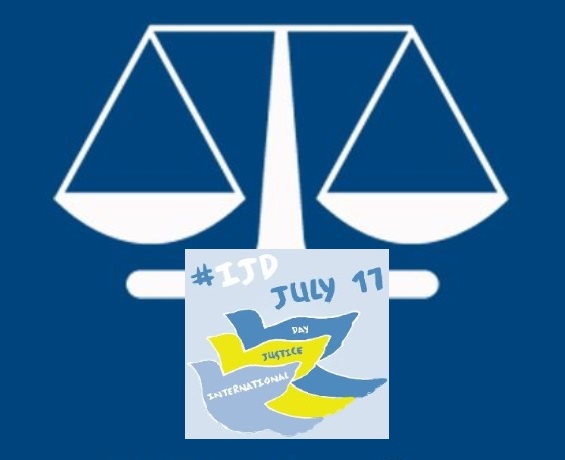Brussels/Rome, 17 July 2019
As the spotlight of the 20th anniversary celebrations for the Rome Statute of the International Criminal Court began to fade, very real questions about the ICC’s “fitness for purpose” began to re-emerge, against a backdrop of renewed hostility for the court and its work.
On the occasion of the 20th anniversary of the Rome Statute, NPWJ-founder Emma Bonino called for a new compact, noting that “The Court needs to do better. It needs to review its past performance, ask itself some hard questions and make some hard choices so it can work more effectively and efficiently. If it does that, it will have the moral high ground when it asks for what it needs and we will be in a better position to support and promote it.” The call was taken up by former ASP Presidents Prince Zeid Raad al Hussein, Bruno Stagno Ugarte, Christian Wenaweser and Tiina Intelman in a piece published by the Atlantic Council with the dramatic headline “The ICC Needs Fixing”. Noting a growing gap between the unique vision captured in the Rome Statute, the Court’s founding document, and some of the daily work of the Court”, the former ASP Presidents called for an independent assessment of the Court’s functioning by a small group of international experts. The Bureau of the ICC’s Assembly of States Parties seems to be heeding the call: in June, it noted a “growing consensus regarding a review of the Court” and appears to be making progress towards that goal.
It is true that the ICC’s track record has not been stellar, especially over the past couple of years, despite some important advances. On the plus side, it has affirmed that there is no place in international law – or at least in international courts – for Head of State immunity: they, like the rest of us mere mortals, can be held accountable for crimes under international law. It has affirmed that it is possible to investigate and prosecute sexual and gender-based violence with the recent conviction in the Ntaganda case. It has shown that when some parts of the system fail, other parts can step in and restore faith, as the ICC Trust Fund for Victims did following the acquittal last year of Jean-Pierre Bemba. It is contributing to our understanding of how international criminal law can be used in creative ways to seek justice for victims with the recent request for the opening of an investigation into Bangladesh/Myanmar.
On the minus side, however, cracks were appearing in the ICC’s image already last year, with public infighting within the Court, discord and disharmony making the headlines. In the following twelve months, things have not gotten much better: there have been a plethora of cases filed by former and current staff and officials at the International Labour Organisation Administrative Tribunal that have so far resulted in large pay-outs by the ICC for several cases that were resolved, with other cases still pending. The “no case to answer” decision in the Blé Goudé and Gbagbo case was received with much dismay and made many reopen questions about the Office of the Prosecutor’s investigative capacities and capabilities. To be clear, No Peace Without Justice does not believe that acquittals demonstrate a failure by a judicial institution including its investigative and prosecutorial arms. However, the fact that the Prosecutor had failed to discharge its burden of proof in respect of the charges it brought against these two defendants, that the defence did not even have to argue its case or bring its own evidence, demonstrates that something is wrong at the ICC.
Then there was the release of the decision not to open an investigation into the situation in Afghanistan, despite the fact that the Prosecutor showed reasonable grounds to believe that grave crimes within the jurisdiction of the Court had been committed, a decision that is now under appeal. That decision was issued just a couple of weeks after United States Secretary of State Mike Pompeo threatened retaliation against ICC staff and officials and anyone who supported the opening of an investigation into US troops in Afghanistan. While not wishing to impugn the ICC judges, the content and timing of the decision made many wonder whether the ICC Judges were caving to political pressure in declining to open that investigation.
As much as we might agree with some of these criticisms – while decrying blatant bullying such as that demonstrated by Secretary Pompeo – No Peace Without Justice continues to support the court and we re-commit ourselves to working with it and others to help the Court grow from strength to strength.
Why? The answer is simple: a world with a vehicle for accountability for war crimes, crimes against humanity and genocide is better than a world without it. The vehicle may need repairs, on the inside and the outside, but it remains the lynchpin of the Rome Statute system, which encompasses both judicial and non-judicial accountability mechanisms at all levels. The ICC continues to stand as a promise that the victims will not be forgotten, their suffering will not remain unnoticed and that justice will one day be done. For this reason, it needs our support to amplify its good deeds and help it do better. The ICC is the brainchild of us all and like good parents, we must praise when it does a good job and correct when it strays from its path. We stand by the words our founder said last year and remain convinced that, “there must be no safe haven for war criminals anywhere and that nobody should feel they are able to commit these terrible crimes with impunity.” The ICC, for all its faults and failings, stands as the bastion against that safe haven and for this reason, must be fixed and strengthened for the tribulations awaiting it in the years to come.
For further information, contact Alison Smith, Director Of International criminal Justice Program, on asmith@npwj.org or Nicola Giovannini, Press & Public Affairs Coordinator, on ngiovannini@npwj.org org.




